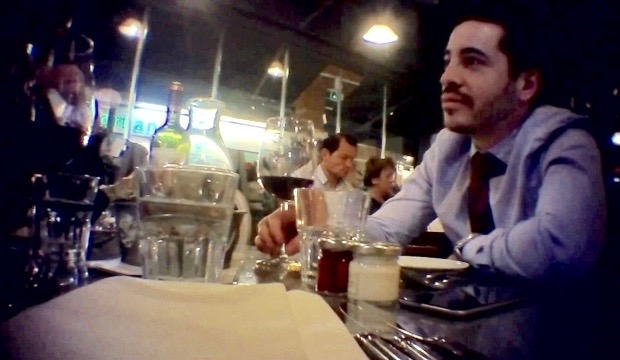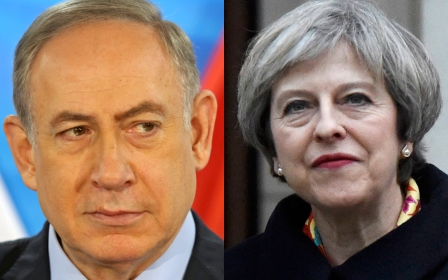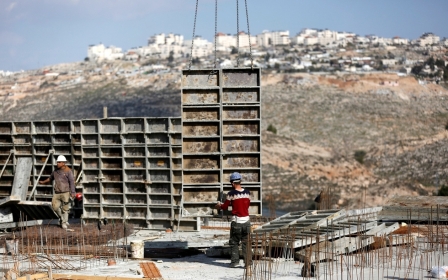May meets Netanyahu: Two urgent issues the British PM must raise
Theresa May today completes a hat trick of meetings with controversial and very right-wing world leaders.
Late last month saw her now notorious visit to Donald Trump in Washington. Though successful in many ways it will be remembered for her failure to speak out bravely on the US president's attempt to block visits from seven Muslim-majority countries.
Then she flew to Turkey for a meeting with President Recep Tayyip Erdogan, who is accused by some of brutally building an authoritarian regime in the wake of last year's failed coup against him.
Britain's May does fighter jet deal with Turkey, presses on rights
Now Israeli Prime Minister Binjamin Netanyahu comes to Downing Street, fresh from announcing the construction of 3,000 new settlement homes in the West Bank and East Jerusalem in a fresh hammer blow to the Middle East peace process.
May is completely right to meet Netanyahu, just as she was completely right to meet Donald Trump. But she badly needs to learn the lessons from her trip to Washington last month.
When she failed to speak out on the Muslim ban in Washington she let Britain down. She will be letting Britain down if she fails to tackle the Israeli leader on two urgent issues today.
Dear Theresa May, your policies make it hard to feel like I belong
The first of these is settlements. Here Britain has a special responsibility. It is exactly 100 years since another British prime minister, Arthur Balfour, made his famous declaration which set in motion the creation of the state of Israel.
Britain is entitled to feel proud of its central role in the creation of a Jewish nation home. However that Balfour letter also pledged that "nothing shall be done which may prejudice the civil and religious rights of existing non-Jewish communities".
Netanyahu's policies have been disastrous for Palestinians and his latest announcement of new settlement construction makes matters a great deal worse. in 2012, William Hague as foreign secretary warned that settlement construction in the West Bank would make a two-state solution impossible.
Hague, one of our most pro-Israeli foreign secretaries, said then that this seismic moment would happen within two years. More than four years have passed since he made those remarks and the situation has only got worse.
We are told that May will make her usual cursory pronouncement on British opposition to settlement building before settling down to business. That is no longer good enough. In the year of the centenary of the Balfour Declaration she must make it plain to Netanyahu that Britain feels a historical obligation to the Palestinians as well as Israel and reiterate the British view that the settlement programme is illegal.
There is a second piece of business May must raise with her Israeli counterpart. That is the still-mysterious case of Shai Masot, the Israeli embassy official caught red-handed conspiring to "take down" the foreign office minister Alan Duncan and other senior Conservative members of parliament, as well as interfering in internal Labour Party politics.Middle East Eye's coverage of the Israel Lobby scandal
This was an extraordinary episode. Had it involved any other British ally - such as the United States or France - it would have led to national outrage. It would have led to a security investigation.
Had it involved Russia or Iran it would probably have led to a rupture in diplomatic relations. As Nicholas Soames, the grandson of Winston Churchill and a Conservative MP, said, Masot was "suborning democracy", and interfering in due process.
This episode is made very much worse by the fact that Israel is such a close ally of Britain. Its representatives have privileged access at the highest levels of our politics. To simultaneously engage in what looks very much like a covert influence campaign - ie. espionage - is the act of a hostile power.
May needs to say as much to Netanyahu. If she does not do so she will make the government appear complicit in an Israeli attempt to undermine one of its own ministers.
I supported "Brexit", Britain's proposed departure from the European Union, during the referendum campaign six months ago. But there is a danger that our looming departure from the EU is making Britain appear needy.
There was a hint of this in May's hurried visit to Washington, and her failure to teach President Trump a lesson in decency. The British prime minister is the leader of a fine independent country which stands up for tolerance and decency - and she must not forget that.
Peter Oborne was named freelance of the year 2016 by the Online Media Awards for an article he wrote for Middle East Eye. He was British Press Awards Columnist of the Year 2013. He resigned as chief political columnist of the Daily Telegraph in 2015. His books include The Triumph of the Political Class, The Rise of Political Lying, and Why the West is Wrong about Nuclear Iran.
The views expressed in this article belong to the author and do not necessarily reflect the editorial policy of Middle East Eye.
Photo: Israeli Prime Minister Benjamin Netanyahu attends a weekly cabinet meeting in Jerusalem (Reuters)
New MEE newsletter: Jerusalem Dispatch
Sign up to get the latest insights and analysis on Israel-Palestine, alongside Turkey Unpacked and other MEE newsletters
Middle East Eye delivers independent and unrivalled coverage and analysis of the Middle East, North Africa and beyond. To learn more about republishing this content and the associated fees, please fill out this form. More about MEE can be found here.







